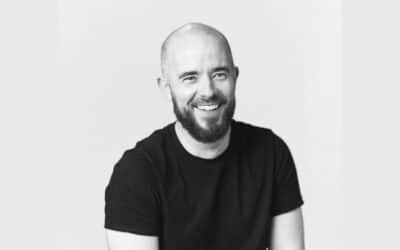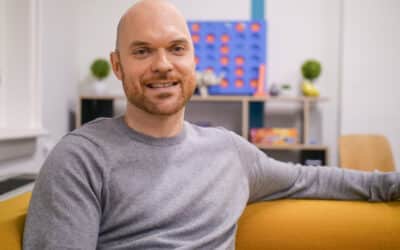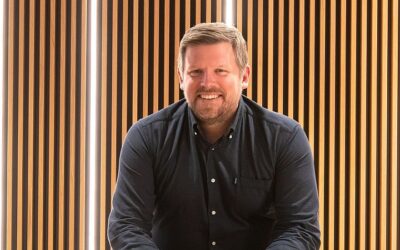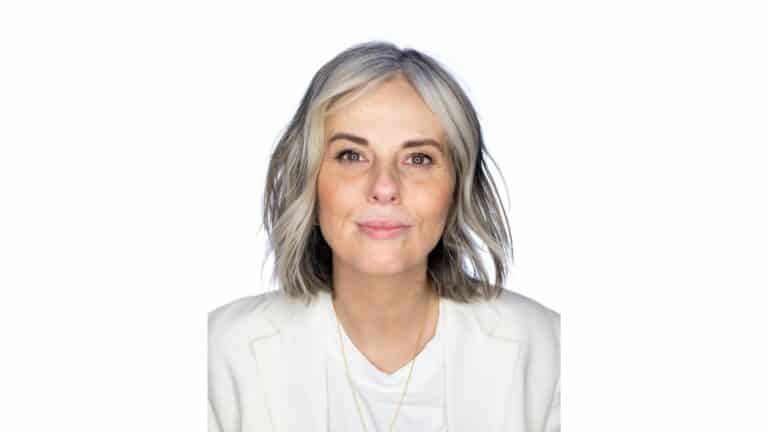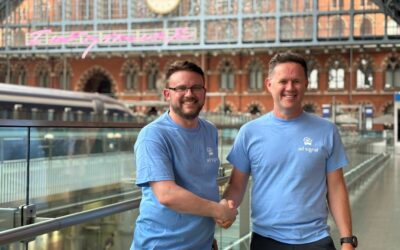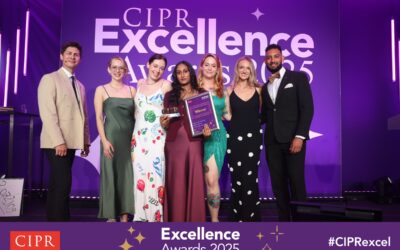Jane Hector-Jones is head of brand partnerships and sponsorship at Factory International.
Manchester’s new arts and culture destination, which recently announced it will be now named as Aviva Studios after the insurance company bought naming rights, is predicted to add £1.1 billion to the economy of Manchester and the surrounding region over a decade.
Since being appointed to the role earlier this year, Hector-Jones has been working with brands for the launch of Factory International as it prepares for the return of Manchester International Festival, kicking off on 29th June.
She joins from Channel 4, where she was senior content and creative lead.
Here, she shares all the lessons she’s learnt…
Which single daily habit or practice could you not do without?
The only thing that I can rely on doing every day is having a cup of tea first thing. I certainly couldn’t do without that. I’m not really a person who thrives on repetition, my diary is and has been for a long time, different every single day, whether that is ideation, learning about incredible new thinking or work from our curatorial team, or meeting clients and helping address their challenges and needs. Fundamentally, my role as Head of Brand Partnerships and Sponsorships is finding out what needs addressing for our partners and creating a response to that.
Our current topic of interest is future technology, what it brings to art and culture, and what that partnership could look like. Making sure you do what you say you are going to do to the best of yours and the organisations abilities, and enabling my team to do the same, has always been a priority. With so much going on, if I don’t write it all down and cross it off, I’m in trouble. Unspooling my brain onto a piece of paper, organising that by urgency and importance, and working through it is the only way I can keep myself on track.
What’s been your luckiest break?
My luckiest break has always been the people I’ve been fortunate enough to be around. My current job at Factory International means I’m learning and being inspired by people every single day. It’s a place full of creativity, ambition, and holds a clear vision that everyone is working towards – that’s something that is really powerful to find in a workplace. I’ve never been bored by anyone, and I’m genuinely as happy to learn about what a system can offer to making our processes work better as hearing about some of the incredible work that you will see at this year’s MIF and at our cutting-edge venue.
The new building will be welcoming its first visitors during the festival in June and is set to reshape the city by attracting thousands to the venue through global cultural events, social and digital platforms, and activations in the metaverse, such as the virtual venue in Fortnite Creative. The venue will establish Manchester as a global cultural hub, and bringing in £1.1bn to the economy over a decade. There’s a lot to be excited for.
What’s your best failure?
I’m a failed singer really. Not least because I can’t really sing very well, but I spent some time in indie bands, trying (actually, thinking about it I’m also a failed bass player). However, recording and releasing our first record independently, sticking all the labels on the records, organising gigs and transport, doing interviews and all that stuff, sadly to rather limited effect, really taught me organisational skills, and the belief that anything is possible if you give it your best shot.
I had some fantastic times doing that, made lifelong friends, and got to travel about. What’s not to like? I’d much rather have given it a go than not. (No, I won’t tell you the name of the bands.)
What is the best investment you’ve ever made, either financial or time?
The best time investment I’ve ever made is into parenting. I completely understand what a privilege this is, and I’m very grateful that that I’ve had the opportunity. It’s been the most incredible, challenging and rewarding journey in terms of personal growth and my own place in the world, and there’s not a day goes by that I don’t have to examine my history or my own processes in response to trying to do the best I can.
Which book would you recommend others to read and why?
Ten arguments for deleting your social media accounts right now by Jaron Lanier. As someone who has an interest both in psychology and an advertising and media background, I think those that have any kind of interest in social media as a form of communication should add a lens of what impact your planning has on the viewer, and more specifically young and adolescent people.
It’s an incredible development in communications, with so many benefits. However, the current spike in mental health issues in young people and that growth indexed alongside the growth in social platforms is a massive area of concern. The knowledge of how psychological principles have been built into the functionality of social platforms is illuminating and helps underline the need for regulation in how brands and businesses, and plain old humans interact with each other on these platforms.
What one piece of advice would you give your 21-year-old self?
You will finally find a job where your fine art degree is of use, but it might take a while. (Did I mention that I’m also a failed painter.)
Who or what has had the single biggest influence on your working life?
John Ayling – my first boss at the Leeds Weekly News. He believed I could do the job and encouraged me. Encouragement is so important for young people entering the workplace. He also taught me to sell things, and I still love to match needs to benefits and do a deal. People think that selling things is like some kind of black magic trick, where you walk away with a car you don’t want. But it’s not, its solving people’s problems in a delightful way. No one buys what they don’t want.
Sandra Tinker has also been a big influence for setting my guiding values in the workplace and having enough belief in me to allow me to move across into a more creative brand partnerships role rather than straightforward trading. Thanks Sandra! And lastly Channel 4 was full of amazing people, who taught me so much.
Tell us something about you that would surprise people.
I think I’m an introvert.
How will the COVID crisis change work for the better?
Losing women from the workplace when we have children is an absolute travesty, as is losing women in the workplace through menopause. Flexibility of working patterns and location are really helpful to address some of the barriers that cause this to happen. Of course, this can benefit other groups, but there is such a significant impact around these two issues. I’ve also noticed that on project work, Teams or the like really builds in a sense of cooperation, and a more collaborative approach.
It’s also one of the core pillars of Factory International. The Arts have always been a space of blurring boundaries and reinventing the old, and the team at Factory International works in the same way. We cater to the needs of each individual and offer flexible working options to ensure the best working environment for you. Flexible working is here to stay.
What does success look like to you?
Happiness, whether that’s personal or professional, a client’s reaction, or how you feel as a person. That’s the aim.

